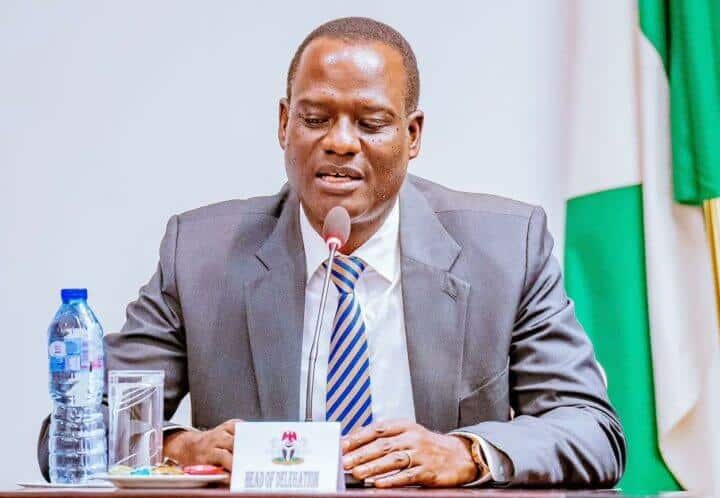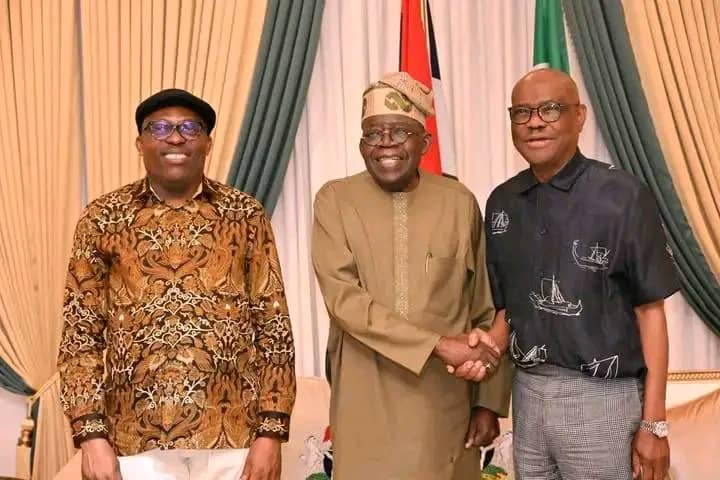Taiwo Oyedele, Chairman of the Presidential Committee on Fiscal Policy and Tax Reforms, has disclosed that the controversy surrounding Nigeria’s ongoing tax reforms took a significant emotional toll on his family, describing it as the most difficult personal sacrifice he has had to make since assuming office.
Speaking during an interview on Channels Television on Thursday, Oyedele revealed that the public scrutiny and media attacks that accompanied his work led his wife to hold night vigils for him on a daily basis at the height of the controversy. He described the experience as emotionally draining for his household and said it tested his family’s resilience.
“The biggest sacrifice turns out to be the emotional impact, particularly on my family,” he said. “At the height of it, there were people who would cook up stories on blogs and in newspapers, and it took a toll on my family. My wife, for example, was doing night vigils every night and struggled to stay awake the following day.”
Oyedele added that he was grateful his children were still too young to fully grasp the extent of what he was going through, but admitted the entire period had been deeply stressful. Despite this, he emphasized that the experience was a sacrifice he was willing to make in service to the country.
Oyedele, who was appointed in July 2023 by President Bola Tinubu to lead the fiscal and tax reform committee, has become a central figure in Nigeria’s economic restructuring efforts. His work has attracted praise from supporters of reform but also criticism from various quarters concerned about potential tax increases and the implementation process.
In the interview, Oyedele urged Nigerians to support honest public officials and avoid discouraging those who genuinely want to contribute to national development. He noted that public service is already difficult, and additional pressure from misinformation and unfair criticism only deters capable individuals from participating in governance.
“I think it’s important to make the point that if Nigerians truly want a better country, they should not discourage honest people who want to help,” he said. “It’s already a tough decision to try and work in the public sector. Making it harder than it ought to be is not helpful.”
Oyedele also highlighted the personal financial sacrifice he made by accepting the government appointment without demanding a salary. He revealed that he rejected an official salary offer, asking only that the government cover the operational costs associated with the role.
“In terms of the financial sacrifices, maybe that is now even smaller looking back,” he stated. “The amount the government was going to pay was going to be ridiculous. So, I said: just cover the cost of what you asked me to do; you don’t need to pay me a salary. And I’m also fine with that. It’s a small sacrifice in the context that this can make.”
Looking ahead, Oyedele reaffirmed his belief that the reforms being introduced would have long-term positive effects on Nigeria’s economic landscape. He clarified that the intent of the new tax laws is not to raise taxes but to make the system more efficient, encourage business growth, and target tax evaders rather than burdening low-income earners.
He stressed that the tax policy changes, which are scheduled to take effect from January 2026, are designed to stimulate economic activity while ensuring fairness in tax administration. According to him, the laws are structured to be “efficiency-driven, growth-focused, and people-centric.”
“We’re not trying to increase taxes. We’re trying to reduce the burden on businesses, protect the poor, and stop taxing poverty,” he explained. “We also want to make it easier to track tax evasion and ensure that people who should be paying taxes actually do.”
Oyedele’s leadership of the tax reform committee has involved consultations with multiple stakeholders, including private sector leaders, civil society organizations, and government agencies. The committee is expected to finalize its framework for full implementation by 2026, with a focus on broadening the tax base, enhancing transparency, and eliminating loopholes.
Despite the challenges, Oyedele expressed optimism that the reform process would yield results beneficial to both the government and the Nigerian people. He maintained that his commitment to the national interest would not be shaken by controversy or personal discomfort.





